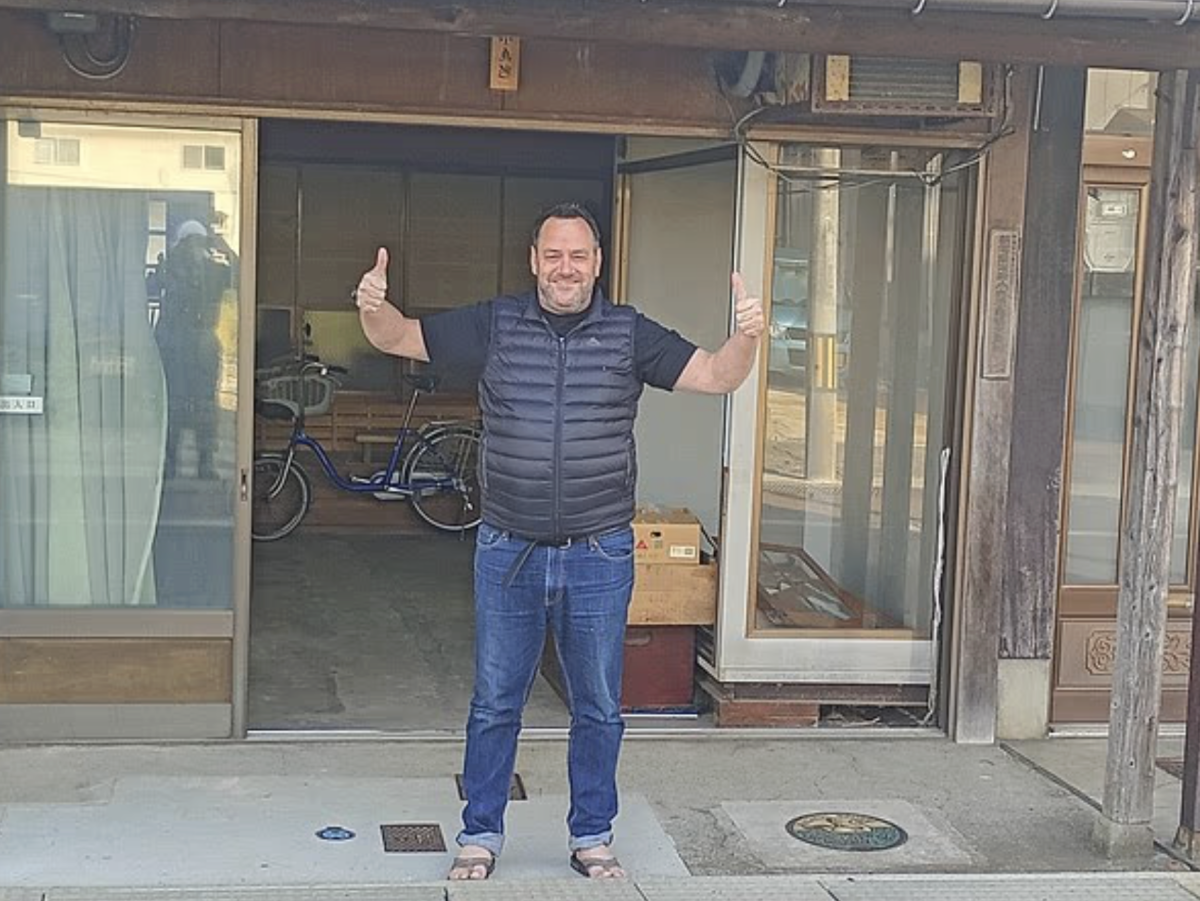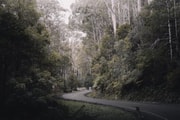
When Wollongong man Anthony Randall realised owning a home in Australia was becoming an 'unreachable' dream, he decided to think differently—by looking overseas. Two years later, the 52-year-old urban planner found himself holding the keys to a two-storey, three-bedroom house in Japan that cost less than a second-hand car.
A dream that finally felt within reach
Randall said he'd long felt locked out of Australia's property market, where Sydney's median house price recently climbed 3.4 per cent to a record $1.75 million—while units reached $880,000.
'I was sick and tired of not being able to buy a house here,' he said, explaining that Japan's declining population had left 'empty houses everywhere' in smaller towns.
Joetsu, home to about 190,000 people in Niigata Prefecture, isn't a major city—but Randall can reach it from the airport in just two and a half hours thanks to Japan's bullet train system.
His nearly 100-year-old house had been abandoned for more than a decade before he bought it for just $5,000. Despite its age, he said it was 'completely functional' and believed it was last renovated in the 1970s.
‘From the outside and the inside, it doesn’t present as a 96-year-old house,’ he said. 'It’s really good for the spirit and your well-being. If that’s the most I can get out of the property, that’s a win for me.'
Hidden costs behind the $5,000 bargain
While the purchase price made headlines, the real cost came closer to $20,000 after adding all fees, waste removal and basic maintenance.
'I’m quite pleased that it was $5,000 because all these costs have all crept up and a lot you can’t predict,' he said. 'Had I bought a $40,000 house, I’d be in trouble.'
Stamp duty was a mere $2—paid in cash—and waste removal alone nearly matched the cost of the house, with the property filled with bags of old clothes, shoes and photographs.
'The house had been empty for ten years,' he said, adding that he kept some items like sake sets and unused Japanese plates to furnish his kitchen.
The home still needs heating installed and may eventually need a sewer connection, since it currently runs on a septic system.
What his $20,000 really covered
Purchase price: $5,000
Stamp duty: $2
Buyer’s agent and admin fees
Waste removal: nearly $5,000
Basic maintenance and heating installation
Ongoing property taxes: under $500 a year
No visa shortcut
One reality check for foreign buyers: owning property in Japan doesn’t grant residency. Randall faces the same visa process as anyone else who wants to stay long-term.
For now, he visits part-time—and that’s enough.
'Even if I can only live there for part of the year, that’s fine,' he said. 'It’s good for the spirit.'
Welcomed by locals
Randall said neighbours have welcomed him warmly and were happy to see someone bringing life back into their quiet community.
After buying the property, he joined them for shared meals and drinks. 'They were happy I bought a vacant home in the area,' he said, adding that the small gestures made him feel part of something again.
Why Japan has so many cheap houses
Japan currently has more than nine million akiya—abandoned homes—roughly one in seven houses nationwide. The issue stems from population decline and younger generations moving to cities. As Randall put it, 'There are empty houses everywhere.'
Despite being almost a century old, his house still stands strong—a symbol of the balance between Japan’s housing surplus and Australia’s shortage.
Other Aussies are doing it too
Randall isn’t alone in his move. A three-bedroom apartment in Nishinomiya, Hyogo Prefecture, recently sold for about ¥25 million—roughly AUD $250,000—according to Brisbane-based buyer’s agent Tatsuya Hioki.
Mr Hioki, a Brisbane-based buyer’s agent, said Australians could even build a brand-new home for about ¥40 million, or around AUD $400,000.
A new kind of homeownership
Randall said the move wasn’t just financial—it was emotional. He believes it’s possible to find stability and fulfilment in unexpected places.
Experts on international property trends note that akiya homes often appeal to lifestyle-driven buyers rather than traditional investors. Many see them as opportunities to restore heritage homes, contribute to local communities and enjoy slower, more meaningful living.
Japan’s strong healthcare system, efficient infrastructure and high safety standards also make it attractive for older buyers seeking a manageable, low-stress lifestyle abroad.
For Australians, that combination of affordability and quality of life can be hard to ignore.
For Randall, his decision seems to have paid off. 'It’s really good for the spirit and your well-being,' he said.
Source: YouTube / 9 News Australia
Read next: Are Australians living in homes that don’t fit their lives? New data says yes
Have you ever thought about buying a home overseas? Would you take on a renovation project like this, or does the distance make it too daunting? Share your thoughts in the comments below.








